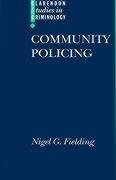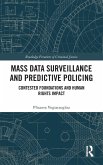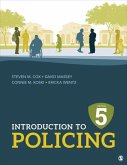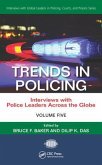Community policing seems always in vogue, yet its essential qualities remain elusive. There has been a rush to evaluate community policing before commentators have got to grips with what community police officers do which is distinctive. This book demonstrates, in detail, how community police officers go about such matters as gathering crime-relevant information from people in the local community, how they apply informal social control to public disorder situations, and how they 'play' the police organization itself in order to obtain resources they need and to secure their own advancement. However, such a brief is not sufficient in itself. The point is to use such a discussion of working practices to assess the conceptual apparatus which has been developed to understand community policing, and to evaluate the potential of community policing to achieve the objectives which policy-makers have set for it. That is the agenda of this book.
While community policing has long been fashionable it remains difficult to define its essential characteristics. In this timely book a leading commentator on community policing offers a detailed examination of the contemporary practice of community-based policing in England. The book demonstrates how community police officers go about such matters as gathering crime-relevant information from people in the local community, how they apply informal social control to public disorder situations, and how they manipulate the police organization itself in order to obtain resources and advancement. This detailed examination is set within a conceptual framework which attempts to advance our understanding of community policing and our ability to evaluate its success in achieving the objectives which policymakers have set for it.
Hinweis: Dieser Artikel kann nur an eine deutsche Lieferadresse ausgeliefert werden.
While community policing has long been fashionable it remains difficult to define its essential characteristics. In this timely book a leading commentator on community policing offers a detailed examination of the contemporary practice of community-based policing in England. The book demonstrates how community police officers go about such matters as gathering crime-relevant information from people in the local community, how they apply informal social control to public disorder situations, and how they manipulate the police organization itself in order to obtain resources and advancement. This detailed examination is set within a conceptual framework which attempts to advance our understanding of community policing and our ability to evaluate its success in achieving the objectives which policymakers have set for it.
Hinweis: Dieser Artikel kann nur an eine deutsche Lieferadresse ausgeliefert werden.








